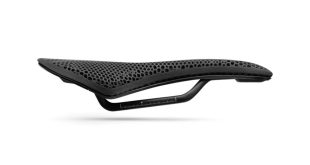Big Hopes for Commuting by Bike
New York Times, Business Section
October 10, 2002
By JOHN MARKOFF
For decades the bicycle industry has drawn its inspiration from the racing world. But this year the stars of the industry’s annual trade show, the International Bicycle Expo held here this week, were closer in spirit to Volkswagens than Ferraris.
Seeking to ignite growth with products appealing to more than the athletic and aggressively outdoorsy, the nation’s bicycle makers are exploring the commuter bike. The idea is to provide an inexpensive and comfortable bicycle that comes with all the essentials – lights, locks, suspension, fenders and even a bell – necessary for getting to work and back.
The $4.2 billion American bicycle industry also senses a market opportunity in the continued sluggish, travel-compromised economy. "People aren’t traveling by
airplanes and they’re staying closer to home, and that’s probably good for the bicycle industry," said Marc Sani, publisher of Bicycle Retailer.
Already, bicycles that are designed to be more accessible to non-skilled riders are the industry’s fastest-growing category. These so-called "comfort" bicycles grew to 20.8
percent of the estimated 17 million bicycles sold in the United States last year. That was up from 13.6 percent in 2000, according to statistics from the National Bicycle
Dealers Association.
"I think support for this kind of bike is growing," said Mike Sinyard, founder and owner of Specialized, one of the nation’s largest bicycle manufacturers.
Several years ago Specialized tested the commuter-bike idea in the United States with a European-inspired Globe Voyager, a bike that came with a rack, chain guards, lights
and fenders – the sorts of accessories that racing cyclists abhor as encumbrances. Specialized plans to introduce a production-line bike similar in concept to the test model, according to several industry executives.
Joe Breeze, one of the inventors of the recreational mountain bike during the 1970s that is now the industry’s most popular product, demonstrated a new line of bikes, the Breezer, at this year’s show. The response, he said, is an indication the bicycle industry is reawakening to cycling as basic transportation.
"It feels similar to the way the mountain bike was received 20 years ago," he said. The Breezer is produced by the SimpliCity Cycle Company, based in Fairfax, Calif., which
Mr. Breeze co-founded in an effort to help cycling gain the kind of acceptance it has long had in Europe and Asia, but not in the automobile-oriented United States.
"The bike has been more like a recreational thing in the United States and not tied to daily life," he said.
Mr. Breeze said Americans were still far from the European view of the bicycle as basic transportation. But he said he was optimistic because the bicycle industry has begun to
act more effectively as a lobbying force.
Much of the industry lobbying focus is on the renewal of the Transportation Equity Act for the 21st Century, or TEA-21, which is expected to come up for a vote next year.
The industry’s wish list includes financing for bike routes and for roadway renovations to make commuting by bicycle more practical.
Yet, even with federal support, bicycling would require more accessible bikes if wider segments of the public are
to embrace them.
"It’s a chicken-and-egg thing," said Ray Keener, a bicycle industry consultant who works with Bikes Belong, an industry lobbying group. "Until now the advocacy groups have been frustrated that the industry hasn’t been ready."
The industry has been slow to recognize the commuter market because many of today’s executive decision makers and designers are former racers, according to Felix
Magowan, president of Inside Communications, which publishes VeloNews, a cycling newspaper. "Racing bikes and mountain bikes are great," he said. "But it’s like using
your downhill skis to go to work."
That is why start-ups like Mr. Breeze’s are noteworthy. So is the new interest in adult-friendly bikes by large makers like Giant Bicycles, a Taiwanese manufacturer.
Giant coined the term sport utility bicycle, or SUB, last year to describe a new line of bikes that went beyond the comfort category, which had previously been aimed at baby
boomers who shied away from mountain bikes and racing cycles.
At the expo, Giant introduced the Revive, a bicycle that features an adjustable wheelbase and a back support, and is a kindred spirit to the increasingly popular recumbent bicycles that the industry has been making in growing numbers in recent years.
"A lot of baby boomers want the ultimate in comfort if they’re going to get back on a bicycle," said Dean Bradley, a Giant product manager.
"People tell us, `My back hurts, my neck hurts, I’m too tall, or I don’t like swinging my leg over the bar,’" he said. "We’re trying to take away all the excuses."
 BikeBiz Bicycle and cycling retail news
BikeBiz Bicycle and cycling retail news



